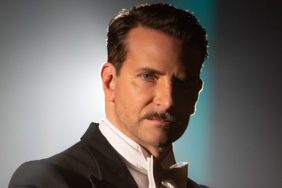After watching Silver Linings Playbook, I find myself really eager to see what David O. Russell could do with a torture porn movie. His previous film, The Fighter, took the formulaic (but effective) underdog sports genre and did something rather wonderful with it, playing the familiar tropes straight but populating his picture with realistic portrayals of complex characters whose lives only happen to be punctuated with the sort of dramatic bullet points a lesser movie would have focused on instead. In a David O. Russell genre exercise, the story elements we’ve so rigorously codified into cliché over the years are outweighed by the kind of real human drama that makes them so meaningful in the first place. We recognize in Russell’s protagonists the types of behavior we ourselves indulge in, and are perhaps ashamed of, so seeing these characters succeed in such a cinematic fashion, overcoming their realistic personal failings in the process, gives us hope for our own crappy lives. Silver Linings Playbook is to romantic comedies what The Fighter was to boxing movies, so naturally I am curious to see what David O. Russell could do with a nubile 18-year-old chained up in a basement.
…
Only looking back on it now, with the benefit of hindsight, do I wish I had not written that last sentence, but I refuse, unlike the bipolar protagonist of Silver Linings Playbook, to dwell on the past. Bradley Cooper plays Pat, a former teacher who was recently released from a mental institution after nearly beating his wife’s lover to death. Pat is committed to finding the “silver linings” in his life, but also thoroughly deluded into thinking that he can simply resume his romantic status quo with his spouse. He makes an effort, reading every book in her syllabus (because she’s a high school English teacher), but becomes so enraged by the bittersweet ending of A Farewell to Arms that he crashes into his parents’ bedroom in the wee hours of the night, having thrown the book out the window and incapable of ceasing an anxious rant about why our stories can’t have happy endings when life is hard enough as it is.

That battle between naïve hope and plausible misery permeates throughout Silver Linings Playbook like the scent of freshly baked cookies as Pat struggles to overcome his sudden violent outbursts and his tendency to say the worst things imaginable to all of his friends and family, without any filter we could call common courtesy. As with most romantic comedies – and make no mistake, despite the fair portrayal of mental illness, that’s what Silver Linings Playbook is – Pat’s life is upended by the appearance of a “manic pixie dream girl,” or at least David O. Russell’s interpretation of that cliché. His version, Tiffany, played by a never-better Jennifer Lawrence (which, one must point out, is really saying something marvelous), is at least a comparable train wreck of a human being, overcoming the recent death of her husband by embracing her inner sluttiness and, to her credit, owning up to her behavior as a vital aspect of her personality, without much in the way of self-judgment.
The plot kicks in when Pat, in an effort to communicate with his wife (who has a restraining order), agrees to participate in a dance contest with Tiffany in exchange for her acting as his personal messenger. As a plot point, this development drips of familiarity: an arbitrary goal with a time limit, ostensibly used to bring one couple closer together whilst simultaneously bringing two seemingly mismatched romantic leads together over the course of the film. But Russell’s characters are so believably screwed up that the conclusion seems anything but foregone. While the ultimate takeaway from Silver Linings Playbook is, as the title suggests, optimistic, it’s not just because the film has two recognizable stars and a cutesy premise. It’s because Russell’s screenplay, adapted from a novel by Matthew Quick, and together with his ensemble cast, effectively conveys a heartbreaking reality that this optimism has to overcome, instead of merely waiting for it to inevitably subside in the final act.

In the end, Silver Linings Playbook tugs the heartstrings and gives hope to us all, but before we get there we have to suffer and, to his credit, Russell never eschews the rom-com genre so much that the audience can’t enjoy themselves in the process. He has a nearly perfect balance in play, elevating to impressive heights conventional supporting roles like the father who just doesn’t get it (Robert De Niro, at his best for a change), the overachieving elder brother (Shea Wigham) and even “the black best friend who teaches white people how to dance” (Chris Tucker). The ending, well, it’s a little easy. It implies a solution to life’s most complex dilemmas that would probably be more of a soothing balm than a cure-all. But life’s hard enough as it is. Why can’t our stories have happy endings?

Read CraveOnline‘s first review of Silver Linings Playbook.







